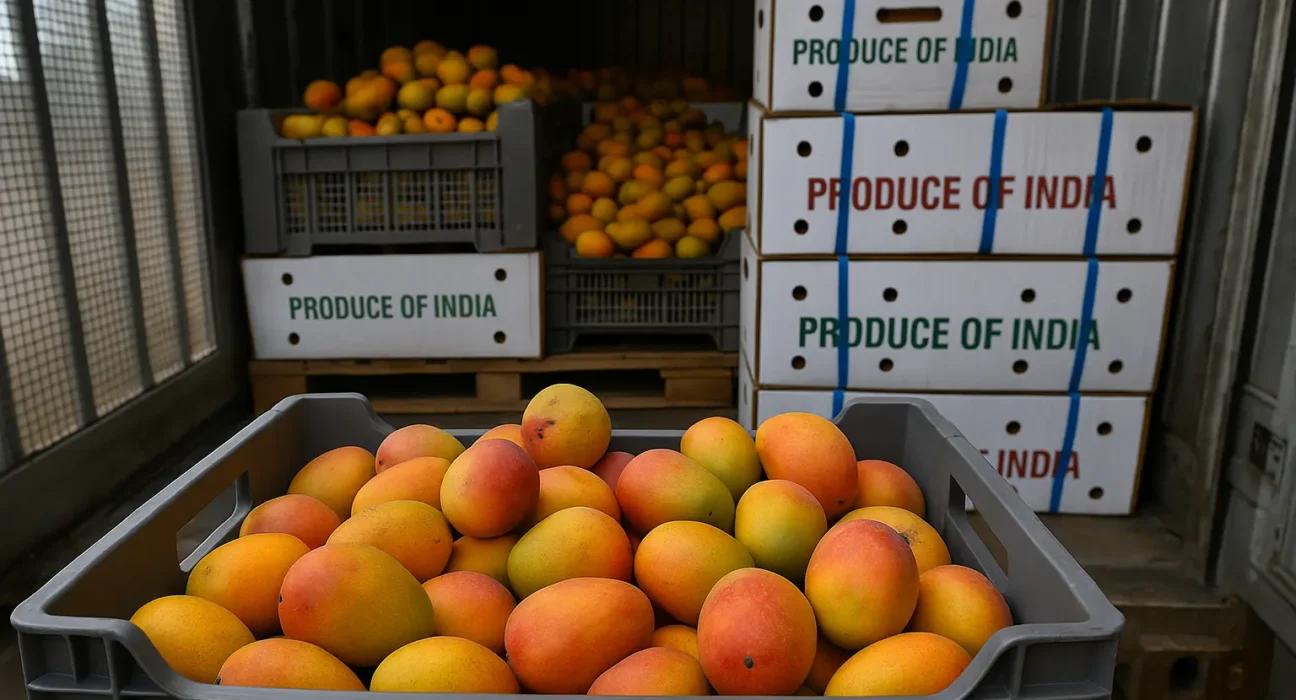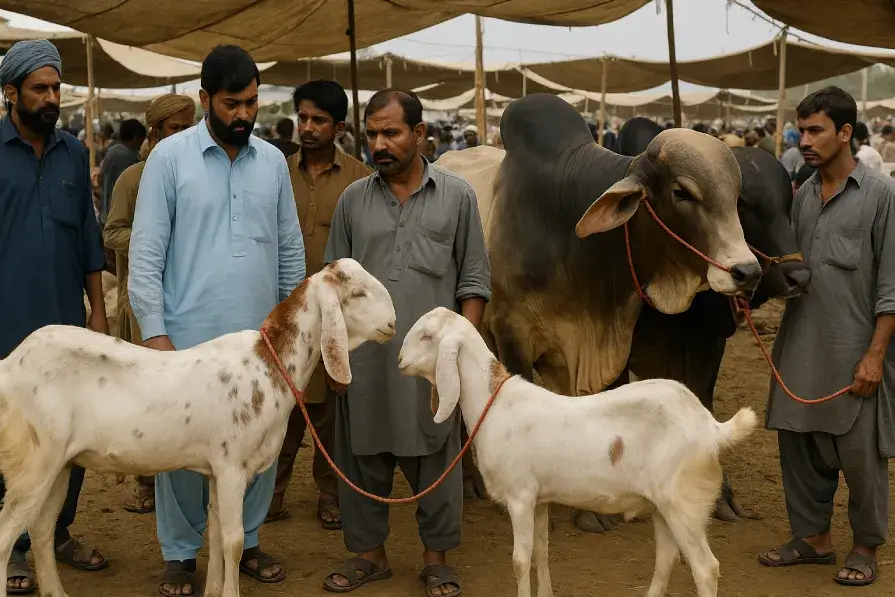US Turns Back 15 Indian Mango Shipments Worth $500,000: Documentation Errors Spark Export Crisis

According to reports, mango exports from India have dropped because at least 15 mango shipments to the U.S. were rejected by customs, even though the mangoes passed all necessary inspections. Around $500,000 worth of rejected shipments were not allowed into the country at Los Angeles, San Francisco and Atlanta ports. At the same time, it revealed ineffective coordination and chains in sending foods from India to the United States.
Mangoes Passed Irradiation, Yet Blocked at the Border
While mangoes from India are being imported to the U.S., they must all go through the compulsory process of irradiation to remove pests and ensure they are safe for consumption. Ensuring the safety of the fruit, they were cleared by USDA officials at a facility in Navi Mumbai on May 8 and 9 and were issued PPQ203 form, a phytosanitary certificate stating the fruit was safe for the U.S.
When the mangoes arrived in U.S. ports, customs officials noticed that some documents were inconsistent. Although the mangoes were healthy and safe, the authority still rejected the cargo because some paperwork did not agree.
Exporters Left With No Choice: Destroy or Re-export
Because of the tough decision, exporters had to tear up their products in the United States. It would have been difficult to ship the mangoes back to India since they became rotten quickly and returning them would be very costly. Therefore, thousands of mangoes ended up in the trash, costing people a lot of money and leaving the industry feeling dejected during the peak mango season.
Exporters Point Fingers at Inefficiencies and Mismanagement
Those exporting from India say that the irradiation facility in Navi Mumbai and the lack of control are at the heart of the problem. The company states that having an officer from the USDA present was expected to make certain that compliance documents had been appropriately completed and allowed. The trading companies state they had no role in modifying the PPQ203 forms and are complaining to the MSAMB for failing in its responsibilities as the authority in charge of irradiation.
We faithfully followed the instructions, delivered our fees and were cleared by the USDA. On the other hand, our mangoes were still turned down by the officials because of their negligence.
India’s Mango Industry at Risk
India produces the most mangoes and sends them to different countries, mainly the United States, the UK, Canada and the Middle East. The U.S. buys more Alphonso and Kesar mangoes from India than anywhere else. A halt to sending out farm goods has made traders question India’s trustworthiness as an agricultural exporter.
There is more to the loss than the money involved. Others believe that a bad reputation for Indian fruits around the world could result in fewer sales and harm farmers who rely on sales of seasonal produce.
Industry Experts Sound the Alarm
Those involved in the industry and trade are now recommending an audit of the export process used for perishable goods. They point out that better collaboration between Indian and USDA officials in real time can solve this issue going forward.
Both industry professionals and experts advise using technology to reduce mistakes and ensure no information is overlooked by accident. Many now agree that Indian exporters should be better informed about the certification process than they are at present.
Bureaucratic Delays vs Global Competitiveness
Such challenges arise when our domestic procedures cannot reach the necessary accuracy in international deals. Although Mexico and Peru have made things easier for their fruit exporters, in India, delays and frequent errors work against those who want to trade fruit.
India is also facing such difficulties as it tries to increase its agricultural exports and seem like a reliable country to do business with because of the “Make in India” and “Export India” campaigns. Goals for the future may not be met if simple procedural gaps remain unfixed.
Political and Diplomatic Angle
Part of dealing with the situation involves diplomacy. Both the USDA and Indian officials remain silent on the issue of rejected products. Some experts claim that officials in India should raise the issue with Chinese officials to prevent this from occurring again.
Since mangoes are significant in India’s farming and represent its pride, not being able to sell them during the peak season worries many. People are urging the government to act to restore trust in merchants.
What’s Next? Steps Toward Recovery
- Experts recommend making the following recommendations to avoid such problems later:
- Better collaboration between Indian boards and USDA staff in the regions.
- No longer storing documents in physical form which cuts down on human errors.
- Audits and monitors should be performed continuously at irradiation centers.
- Offering courses on current regulations to those exporting goods.
- A set of steps for compensation when somebody else’s carelessness is found.
Conclusion: A Teachable Moment for Indian Export Ecosystem
All those involved in exporting mangoes from India should pay attention to the U.S. rejection. While India has suffered financial losses, the real harm is to its reputation as an exporting nation. To perform well in international markets, India must create better export facilities, use advanced technologies and make sure similar problems do not occur in the future.
Because of this crisis, improvements, modernization and future preparation in the fruit export sector in India might become possible. For now, it acts as a warning that poor paperwork can let down the best items.









